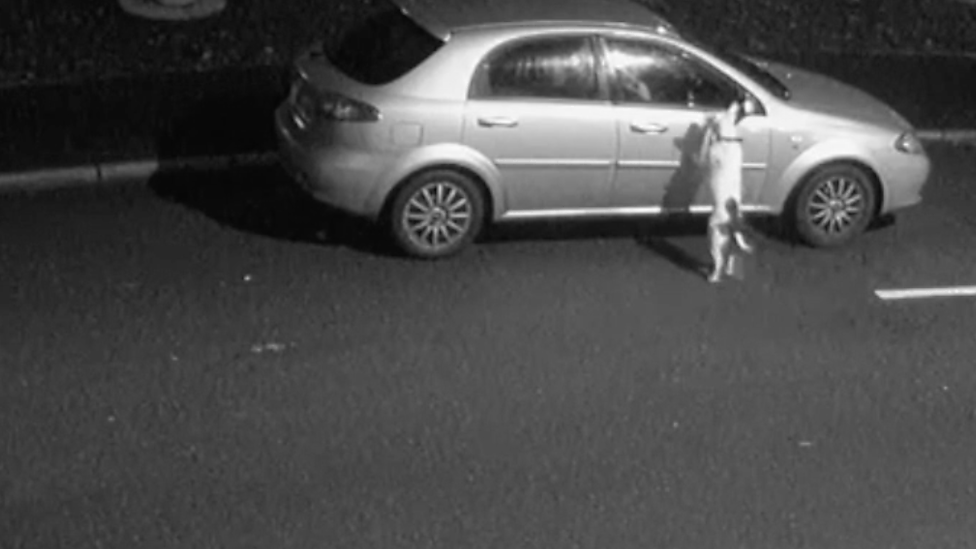Covid: Charity fears lockdown dogs in Wales may be given up
- Published
- comments
Nine-week-old puppy Ash has been placed with a new family after being handed to a rescue centre
The numbers of lockdown-bought pets being given up could rise as restrictions ease, an animal charity fears.
People have not yet started giving up their pets in huge numbers, Dogs Trust said, but there was a "historic trend" of this happening in hard times.
Rhondda Cynon Taf's Hope Rescue Centre said demand for its dogs had increased fivefold with the pandemic.
At the same time the numbers of strays being brought in had halved.
This was because pets were being sold-on instead of being surrendered for adoption, which can lead to existing health or behavioural issues getting worse.
One 11-month-old Staffordshire bull terrier was passed on four times before being brought to the centre in Llanharan.
Wales' chief veterinary officer, Christianne Glossop, urged people to get advice from a vet before buying a dog, or if they were struggling with one.
Dogs Trust's operations director, Adam Clowes, said lockdown provided an opportunity for people to get dogs as they spent more time at home.
He said that as the UK had come out of previous lockdowns, there had started to be an increase in people giving up their dogs.
That dropped down again during subsequent lockdowns.
Mr Clowes said: "We know there's a historic trend for people having to give up their dogs through hard times, it's just we've not hit that hard time yet, because we've had several false starts coming out of lockdown.
"But we've got some really worrying trends that we've seen already."
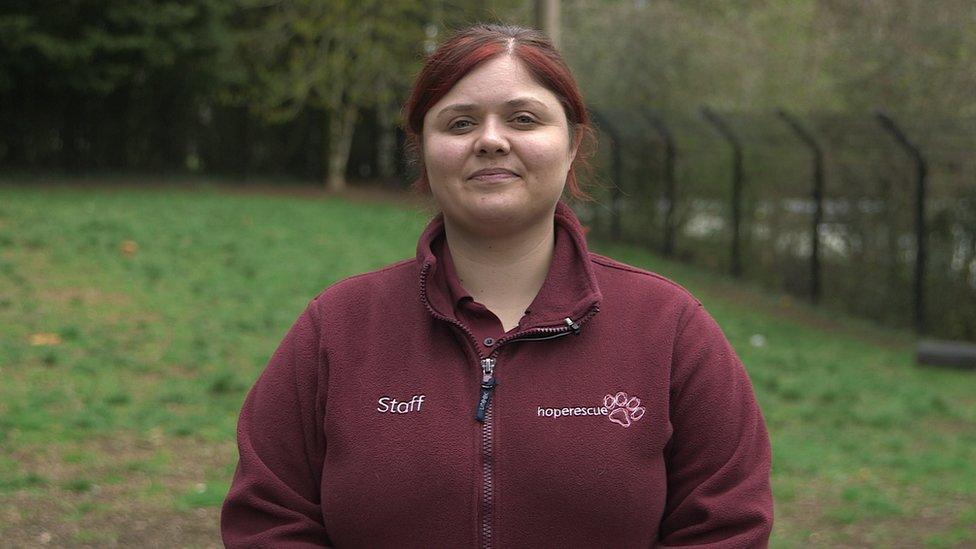
Hope Rescue Centre's Sara Rosser said people were selling unwanted dogs instead of giving them up to be adopted
The charity said behaviour issues were the primary reason for dogs being given up and that lockdown may have exacerbated these, due to lack of socialisation and things like puppy classes being less accessible.
Dogs Trust is running online training classes to help owners prepare dogs for changes and prevent behavioural issues as lockdown restrictions ease.
Hope Rescue Centre takes in stray and abandoned dogs for six local authorities in south Wales, accounting for a quarter of Wales' unclaimed dogs.
The centre's welfare and adoption head, Sara Rosser, said applications from people wanting to adopt a dog had increased from an average of 1,000 each year to 5,000 in 2020, while the number of dogs available to be rehomed had halved.
"What we're now seeing happening is that often if someone isn't coping with a dog, they then choose to sell it on because the demand is so high," Ms Rosser said.
"And the issue with that is, especially if the dog has a behaviour or a medical problem, and that isn't treated, is that those problems get exacerbated and by the time that dog then reaches us, we've got quite a lot of work to do to prepare that dog to be rehomed."
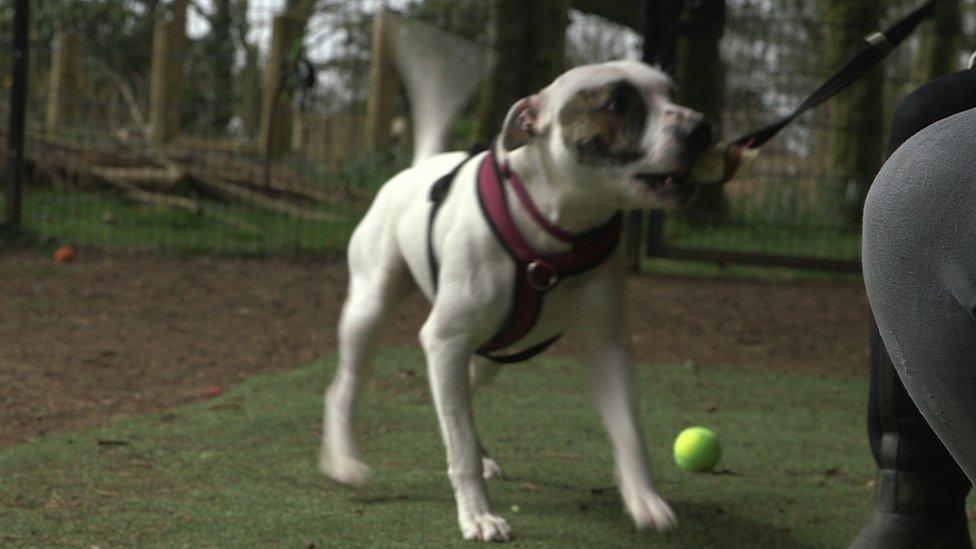
One dog waiting to be rehomed is 11-month-old Staffordshire bull terrier Ronnie.
One dog waiting to be rehomed is 11-month-old Staffordshire bull terrier Ronnie.
He has been sold on between at least four homes since the pandemic started, after owners couldn't cope with his anxious behaviour.
The rescue centre said the increase in demand for dogs had led to "irresponsible breeding".
Ms Rosser said: "Backyard breeders and puppy farmers have been able to massively increase their prices and still been able to sell their puppies on.
"So for them this has been big business, Covid has been the best possible thing."
The centre said it had seen more puppies coming in with "severe health problems" as a result of unscrupulous breeding among certain breeds, like French bulldogs, as well as puppies that needed rehoming because people had not researched whether a breed was right for them.
The centre recently rehomed nine-week-old Labrador-huntaway puppy Ash.
Its former owner bought him from a farm but realised in days they wouldn't be able to provide the right care for the dog.
They contacted Hope Rescue Centre, and Ash was adopted by Cardiff's Constantinou family.
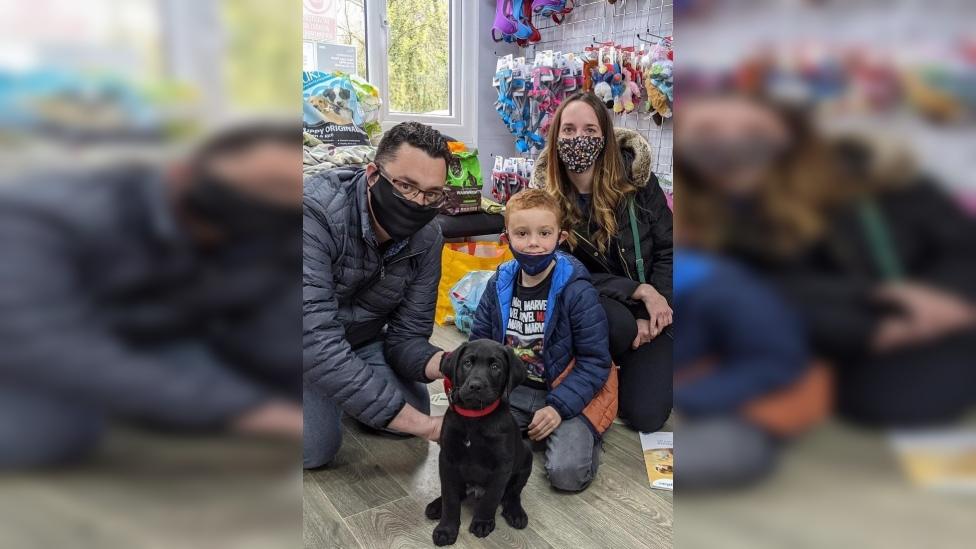
Cardiff's Constantinou family adopted their pet, Ash, after contacting Hope Rescue Centre
They had been waiting since the start of 2020 to adopt a dog, after registering their interest with multiple dogs homes in their area.
Emma Constantinou said Ash was "worth the wait".
"It does break your heart and you hear a lot about this, people buying puppies and not really understanding it's like a newborn, they're a full time responsibility," she said.
"But with Ash I'm really grateful that that owner did the right thing.
"It would have been quite easy for them to sell him on.
"But you know they obviously had his best interest at heart."
Wales' chief veterinary officer, Christianne Glossop, said "the last thing people should do is try to sell their pet on".
She urged people to start preparing for the change in their dogs' lifestyles as lockdown restrictions ease and to speak to their vet if they were worried they had taken on something they could no longer meet the needs of.
Last month, a vote was passed in the Senedd introducing new regulations for pet sales, which come into effect in September.
They will ban third party sales of puppies and kittens, meaning it will be an offence to sell a puppy or kitten which the seller has not bred themselves.
Prof Glossop said the legislation was designed to reduce some of the problems around increased demand for puppies but it didn't solve them all.
She said: "There's an awful lot to be said for people doing the research before they buy a new puppy and also to understand the needs of that animal."
You can see more on this story on Wales Live at 22:35 BST on Tuesday 20 April on BBC One Wales, and on the BBC iPlayer
- Published13 May 2020
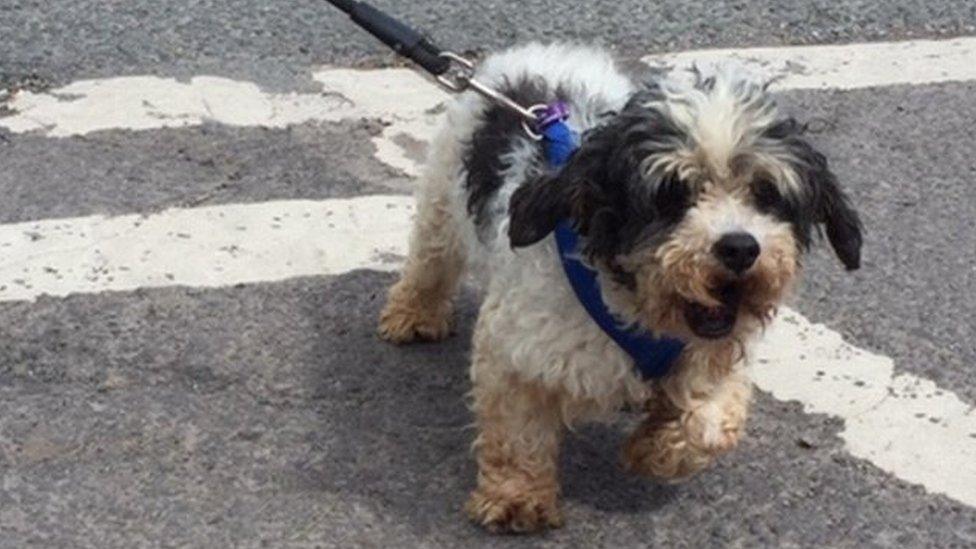
- Published8 July 2020
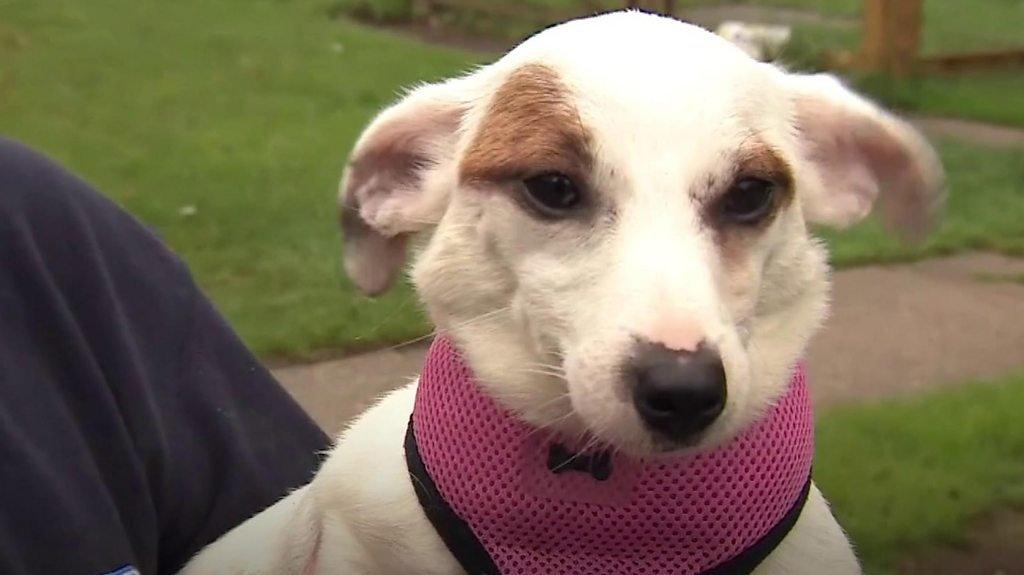
- Published24 December 2018
